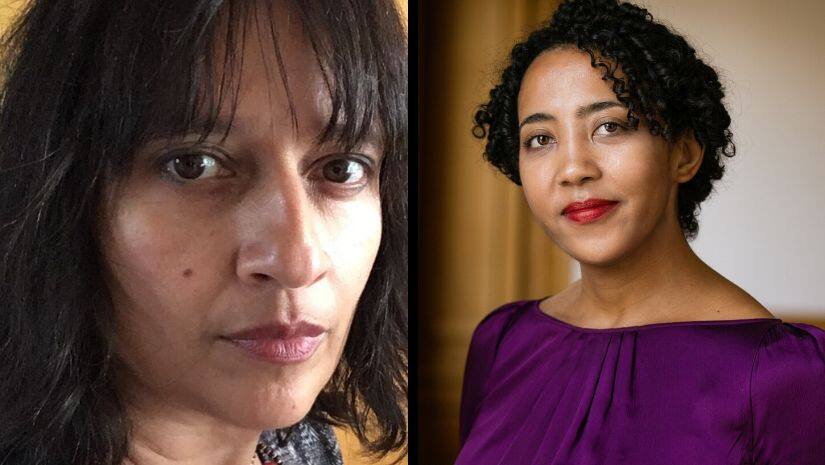At Yale University’s Windham-Campbell Prize 2020, female voices dominated the winners’ line-up as seven women went home with a purse of $165,000 each, for their works of poetry, drama, fiction and non-fiction. The winners were announced in London on 19 March, 2020. Of the eight awards given away every year, seven were conferred upon women at the 2020 edition. Bhanu Kapil, a British poet of Indian origin, bagged the prestigious literary prize for her poems which explore the lives of the marginalised, those that live along the edges and who continue to be despised and displaced or ‘banned’ by the neocolonialist nations they live in. [caption id=“attachment_8170841” align=“alignnone” width=“825”]  British poet Bhanu Kapil (left) and Zambian/ American writer Namwali Serpell are among the winners of the 2020 Windham-Campbell Prize.[/caption] Kapil who writes poems on her blog The Vortex of Formidable Sparkles has six full-length poetry volumes to her name, including the 2016 work, Ban en Banlieue in which her protagonist, Ban acts as a mysterious bodily outline who recalls the struggles of the marginalised. In 2019, the poet was awarded the Judith E. Wilson Poetry Fellowship at the University of Cambridge and is now based there. She said of winning the award, “The impact of receiving the Windham-Campbell Prize during a global pandemic is life-changing and life-supporting for myself and my family. I hope that I can use whatever relief or good that comes from having won such an honour to be of service, on-going, to those in more vulnerable situations than my own.” In a tweet filled with gratitude, she added, “Thank you, @WindhamCampbell (and the anonymous judges!) for — the this of the this of the THIS. I am honored to share this category, Poetry, with Jonah Mixon-Webster.”
For his part, Mixon-Webster said that the prize represents the immanent gifts and responsibilities of the craft of poetry. Dedicating his award to the ongoing resistance against water toxicity in Flint, Michigan, he asserted, “If there is ever a time to use our voices and bodies to form against oppression, it is now!” Also among the winners of the eighth edition of the Windham-Campbell Prize is Julia Cho, whose plays such as the 2016 work, Aubergine or 2010 story, The Language Archive, bring forth the powers and frailties of human connections formed between cultures, generations and even institutions. In the category of Fiction writing, it was former MacArthur fellow Yiyun Li as well as the Zambian-American author, Namwali Serpell, who were presented with the literary award. “Writing is a solitary activity; each book is a message sent out in a bottle,” noted Li, “And one day, a phone call, coming out of the blue, tells an astonishing story of those bottles’ journey not known to the sender: they have arrived, and they are in good hands.” Li’s words allude to the anonymity integral to Windham-Campbell Prize which follows a process where in writers are judged anonymously and the jury continues to remain a secret even after the announcement of the prize winners. In 2019, Indian journalist and author Raghu Karnad was among the winners, receiving this award in the non-fiction category for his work, Farthest Field: An Indian Story of the Second World War. Also read: Raghu Karnad on winning Windham-Campbell Prize, his book on India's role in WWII, and forgotten histories The Windham-Campbell Prize was established in 2013 by Donald Windham in memory of his partner for 40 years, Sandy Campbell. Of 2020’s crop of winners, Mike Kelleher, director of the Windham-Campbell Prizes said, “This is such an exciting group of prize recipients — so many utterly original voices from so many different places. Their work digs deeply into everything from the poisoned water crisis in present-day Flint, Michigan to the vicissitudes of the surveillance state in an Afro-Futurist Zambia. To read the work of these eight writers — seven of them women — is simply overwhelming." Find the full list of winners below: Drama Julia Cho (United States) Aleshea Harris (United States) Poetry Bhanu Kapil (United Kingdom/ United States) Jonah Mixon-Webster (United States) Fiction Yiyun Li (United States) Namwali Serpell (Zambia/ United States) Non-fiction Maria Tumarkin (Australia) Anne Boyer (United States)


)
)
)
)
)
)
)
)
)



